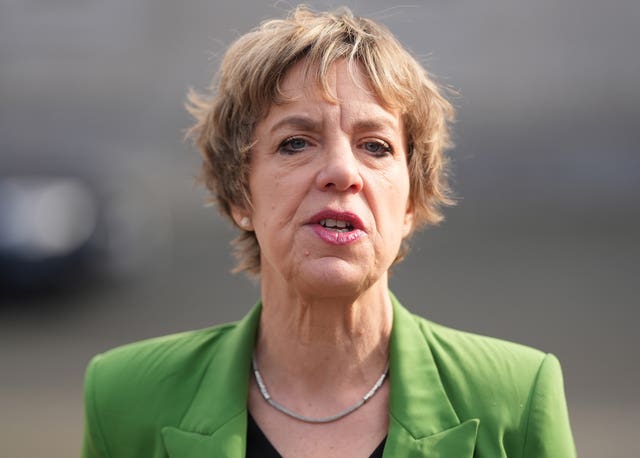Government accused of ‘anti-worker agenda’ over living wage delays

By Gráinne Ní Aodha, PA
The Government has been accused of having an “anti-worker agenda” for delaying the introduction of a living wage, the Dáil heard.
The Labour Party and People Before Profit criticised the delay in bringing in a living wage of €14.75 an hour, the current estimate of what a worker needs to be paid to maintain normal living standards.
The government announced that the phased increase in the minimum wage to €14.75 would be stretched out to 2029.
An increase to the five days of sick leave has been postponed and the introduction of a long-awaited pension auto-enrolment scheme pushed back from September to January.
On Thursday, International Workers’ Day, Labour leader Ivana Bacik said that part of the reason there was outrage over the mooted €430,000 pay for a new housing tsar was because workers are “struggling to make ends meet”.
She told Tánaiste and Fine Gael leader Simon Harris that Fine Gael had spoken positively on workers’ rights previously and that was why it was “disappointing” to see the government “delaying” the introduction of the living wage.

She said there was an attempt to “pin” competitiveness issues on the lowest-paid workers when the housing and infrastructure shortages and “spiralling” energy bills were to blame.
“They shouldn’t be bearing the brunt of the cost-of-living crisis,” she said.
People Before Profit TD Paul Murphy raised the issue of minimum wage rates for people aged under 20, which is below the ‘adult’ rate of €13.50 an hour.
He said he had asked a Government department for an update on an economic assessment being carried out in the event sub-minimum wage rates were abolished.
The Department said it would be completed in June, but said the government was going to “defer any decision” on youth rates of the national minimum wage, he told the Dáil.
Under these rates, 19-year-olds are paid 10 per cent under the minimum wage, 18-year-olds are paid 20 per cent below it, and anyone aged 17 or younger get 30 per cent less pay per hour.
“When they go to pay for groceries, they don’t get 30 per cent off the bill,” Mr Murphy said.
“If a 19-year-old is renting, they can’t take 10 per cent off the rent. They don’t get a young person’s discount on petrol. It is blatant discrimination for young workers doing the same work as their colleagues.”
He called the measure “legalised super exploitation” and said it affected 15,000 young people.
“Will you please reverse course on your anti-worker agenda?” he said.
“I don’t think anybody can credibly suggest that this government is anti worker,” Mr Harris replied.
“In fact, there’s many more workers in this country as a result of this government’s efforts, and successive governments’ efforts, to create jobs in every town, every village, every city, right across our island, and indeed, to have workers, you need to have jobs.”
Mr Harris said he agreed workers are not responsible for the “many turbulent challenges” in the global economy but defended the government’s actions to delay the introduction of the living wage.
He said their party had overseen the introduction of a new public holiday in February, a law on passing on tips to workers, the introduction of remote working arrangements, and the minimum wage had increased by 33 per cent over five years and that would continue.
“We will continue to see the minimum wages increase, and in fact, at present, we have wage growth in Ireland of about 3.5 per cent to 4 per cent and inflation of about 1.7 per cent, so we are back now seeing real wage growth.”
He said there was also progress being made on improvements to parental and paternity leave.
“I’m very pleased to say that auto enrolment will be introduced from January 1st, 2026.
“We do want to see a living wage introduced by 2029.”
He said the minimum wage wasn’t being “breached” in relation to young workers but instead there was a “tiered” minimum wage structure.
He asked Mr Murphy to ask businesses in his constituency about their cost challenges, to which Mr Murphy replied: “I have no problem going into cafes, restaurants, shops in my constituency and saying, no, it’s not OK to pay people less than the minimum wage.
“Surely the government should be in a position to do that,” he said.




